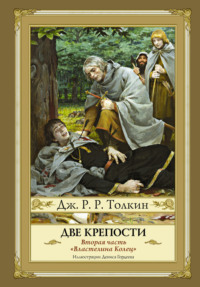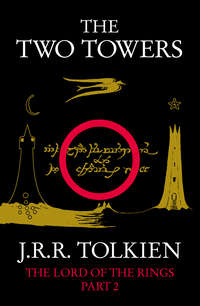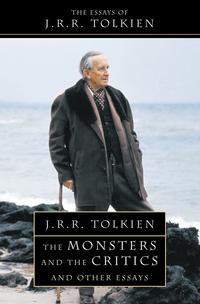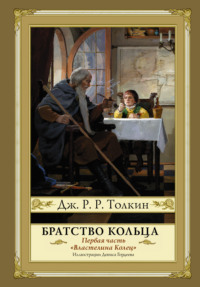
Полная версия
Unfinished Tales
Nine years Túrin dwelt in the halls of Menegroth. His heart and thought turned ever to his own kin, and at times he had tidings of them for his comfort. For Thingol sent messengers to Morwen as often as he might, and she sent back words for her son; thus Túrin heard that his sister Nienor grew in beauty, a flower in the grey North, and that Morwen’s plight was eased. And Túrin grew in stature until he became tall among Men, and his strength and hardihood were renowned in the realm of Thingol. In those years he learned much lore, hearing eagerly the histories of ancient days; and he became thoughtful, and sparing in speech. Often Beleg Strongbow came to Menegroth to seek him, and led him far afield, teaching him woodcraft and archery and (which he loved best) the handling of swords; but in crafts of making he had less skill, for he was slow to learn his own strength, and often marred what he made with some sudden stroke. In other matters also it seemed that fortune was unfriendly to him, so that often what he designed went awry, and what he desired he did not gain; neither did he win friendship easily, for he was not merry, and laughed seldom, and a shadow lay on his youth. Nonetheless he was held in love and esteem by those who knew him well, and he had honour as the fosterling of the King.
Yet there was one that begrudged him this, and ever the more as Túrin drew nearer to manhood: Saeros, son of Ithilbor, was his name. He was of the Nandor, being one of those who took refuge in Doriath after the fall of their lord Denethor upon Amon Ereb, in the first battle of Beleriand. These Elves dwelt for the most part in Arthórien, between Aros and Celon in the east of Doriath, wandering at times over Celon into the wild lands beyond; and they were no friends to the Edain since their passage through Ossiriand and settlement in Estolad. But Saeros dwelt mostly in Menegroth, and won the esteem of the king; and he was proud, dealing haughtily with those whom he deemed of lesser state and worth than himself. He became a friend of Daeron the minstrel, 8 for he also was skilled in song; and he had no love for Men, and least of all for any kinsman of Beren Erchamion. ‘Is it not strange,’ said he, ‘that this land should be opened to yet another of this unhappy race? Did not the other do harm enough in Doriath?’ Therefore he looked askance on Túrin and on all that he did, saying what ill he could of it; but his words were cunning and his malice veiled. If he met with Túrin alone, he spoke haughtily to him and showed plain his contempt; and Túrin grew weary of him, though for long he returned ill words with silence, for Saeros was great among the people of Doriath and a counsellor of the King. But the silence of Túrin displeased Saeros as much as his words.
In the year that Túrin was seventeen years old, his grief was renewed; for all tidings from his home ceased at that time. The power of Morgoth had grown yearly, and all Hithlum was now under his shadow. Doubtless he knew much of the doings of Húrin’s kin, and had not molested them for a while, so that his design might be fulfilled; but now in pursuit of this purpose he set a close watch upon all the passes of the Shadowy Mountains, so that none might come out of Hithlum nor enter it, save at great peril, and the Orcs swarmed about the sources of Narog and Teiglin and the upper waters of Sirion. Thus there came a time when the messengers of Thingol did not return, and he would send no more. He was ever loath to let any stray beyond the guarded borders, and in nothing had he shown greater good will to Húrin and his kin than in sending his people on the dangerous roads to Morwen in Dor-lómin.
Now Túrin grew heavy-hearted, not knowing what new evil was afoot, and fearing that an ill fate had befallen Morwen and Nienor; and for many days he sat silent, brooding on the downfall of the House of Hador and the Men of the North. Then he rose up and went to seek Thingol; and he found him sitting with Melian under Hírilorn, the great beech of Menegroth.
Thingol looked on Túrin in wonder, seeing suddenly before him in the place of his fosterling a Man and a stranger, tall, dark-haired, looking at him with deep eyes in a white face. Then Túrin asked Thingol for mail, sword, and shield, and he reclaimed now the Dragon-helm of Dor-lómin; and the king granted him what he sought, saying: ‘I will appoint you a place among my knights of the sword; for the sword will ever be your weapon. With them you may make trial of war upon the marches, if that is your desire.’
But Túrin said: ‘Beyond the marches of Doriath my heart urges me; I long rather for assault upon the Enemy, than for defence of the borderlands.’
‘Then you must go alone,’ said Thingol. ‘The part of my people in the war with Angband I rule according to my wisdom, Túrin son of Húrin. No force of the arms of Doriath will I send out at this time; nor in any time that I can yet foresee.’
‘Yet you are free to go as you will, son of Morwen,’ said Melian. ‘The Girdle of Melian does not hinder the going of those that passed in with our leave.’
‘Unless wise counsel will restrain you,’ said Thingol.
‘What is your counsel, lord?’ said Túrin.
‘A Man you seem in stature,’ Thingol answered, ‘but nonetheless you have not come to the fullness of your manhood that shall be. When that time comes, then, maybe, you can remember your kin; but there is little hope that one Man alone can do more against the Dark Lord than to aid the Elf-lords in their defence, as long as that may last.’
Then Túrin said: ‘Beren my kinsman did more.’
‘Beren, and Lúthien,’ said Melian. ‘But you are over-bold to speak so to the father of Lúthien. Not so high is your destiny, I think, Túrin son of Morwen, though your fate is twined with that of the Elven-folk, for good or for ill. Beware of yourself, lest it be ill.’ Then after a silence she spoke to him again, saying: ‘Go now, fosterson; and heed the counsel of the king. Yet I do not think that you will long abide with us in Doriath after the coming of manhood. If in days to come you remember the words of Melian, it will be for your good: fear both the heat and the cold of your heart.’
Then Túrin bowed before them, and took his leave. And soon after he put on the Dragon-helm, and took arms, and went away to the north-marches, and was joined to the elven-warriors who there waged unceasing war upon the Orcs and all servants and creatures of Morgoth. Thus while yet scarcely out of his boyhood his strength and courage were proved; and remembering the wrongs of his kin he was ever forward in deeds of daring, and he received many wounds by spear or arrow or the crooked blades of the Orcs. But his doom delivered him from death; and word ran through the woods, and was heard far beyond Doriath, that the Dragon-helm of Dor-lómin was seen again. Then many wondered, saying: ‘Can the spirit of Hador or of Galdor the Tall return from death; or has Húrin of Hithlum escaped indeed from the pits of Angband?’
One only was mightier in arms among the march-wardens of Thingol at that time than Túrin, and that was Beleg Cúthalion; and Beleg and Túrin were companions in every peril, and walked far and wide in the wild woods together.
Thus three years passed, and in that time Túrin came seldom to Thingol’s halls; and he cared no longer for his looks or his attire, but his hair was unkempt, and his mail covered with a grey cloak stained with the weather. But it chanced in the third summer, when Túrin was twenty years old, that desiring rest and needing smith-work for the repair of his arms he came unlooked for to Menegroth in the evening; and he went into the hall. Thingol was not there, for he was abroad in the greenwood with Melian, as was his delight at times in the high summer. Túrin went to a seat without heed, for he was wayworn, and filled with thought; and by ill-luck he set himself at a board among the elders of the realm, and in that very place where Saeros was accustomed to sit. Saeros, entering late, was angered, believing that Túrin had done this in pride, and with intent to affront him; and his anger was not lessened to find that Túrin was not rebuked by those that sat there, but welcomed among them.
For a while therefore Saeros feigned to be of like mind, and took another seat, facing Túrin across the board. ‘Seldom does the march-warden favour us with his company,’ he said; ‘and I gladly yield my accustomed seat for the chance of speech with him.’ And much else he said to Túrin, questioning him concerning the news from the borders, and his deeds in the wild; but though his words seemed fair, the mockery in his voice could not be mistaken. Then Túrin became weary, and he looked about him, and knew the bitterness of exile; and for all the light and laughter of the Elven-halls his thought turned to Beleg and their life in the woods, and thence far away, to Morwen in Dor-lómin in the house of his father; and he frowned, because of the darkness of his thoughts, and made no answer to Saeros. At this, believing the frown aimed at himself, Saeros restrained his anger no longer; and he took out a golden comb, and cast it on the board before Túrin, saying: ‘Doubtless, Man of Hithlum, you came in haste to this table, and may be excused your ragged cloak; but you have no need to leave your head untended as a thicket of brambles. And perhaps if your ears were uncovered you would hear better what is said to you.’
Túrin said nothing, but turned his eyes upon Saeros, and there was a glint in their darkness. But Saeros did not heed the warning, and returned the gaze with scorn, saying for all to hear: ‘If the Men of Hithlum are so wild and fell, of what sort are the women of that land? Do they run like deer clad only in their hair?’
Then Túrin took up a drinking-vessel and cast it in Saeros’ face, and he fell backward with great hurt; and Túrin drew his sword and would have run at him, but Mablung the Hunter, who sat at his side, restrained him. Then Saeros rising spat blood upon the board, and spoke from a broken mouth: ‘How long shall we harbour this woodwose?9 Who rules here tonight? The king’s law is heavy upon those who hurt his lieges in the hall; and for those who draw blades there outlawry is the least doom. Outside the hall I could answer you, Woodwose!’
But when Túrin saw the blood upon the table his mood became cold; and releasing himself from Mablung’s grasp he left the hall without a word.
Then Mablung said to Saeros: ‘What ails you tonight? For this evil I hold you to blame; and it may be that the King’s law will judge a broken mouth a just return for your taunting.’
‘If the cub has a grievance, let him bring it to the King’s judgement,’ answered Saeros. ‘But the drawing of swords here is not to be excused for any such cause. Outside the hall, if the woodwose draws on me, I shall kill him.’
‘That seems to me less certain,’ said Mablung; ‘but if either be slain it will be an evil deed, more fit for Angband than Doriath, and more evil will come of it. Indeed I think that some shadow of the North has reached out to touch us tonight. Take heed, Saeros son of Ithilbor, lest you do the will of Morgoth in your pride, and remember that you are of the Eldar.’
‘I do not forget it,’ said Saeros; but he did not abate his wrath, and through the night his malice grew, nursing his injury.
In the morning, when Túrin left Menegroth to return to the north-marches, Saeros waylaid him, running out upon him from behind with drawn sword and shield on arm. But Túrin, trained in the wild to wariness, saw him from the corner of his eye, and leaping aside he drew swiftly and turned upon his foe. ‘Morwen!’ he cried, ‘now your mocker shall pay for his scorn!’ And he clove Saeros’ shield, and then they fought together with swift blades. But Túrin had been long in a hard school, and had grown as agile as any Elf, but stronger. He soon had the mastery, and wounding Saeros’ sword-arm he had him at his mercy. Then he set his foot on the sword that Saeros had let fall. ‘Saeros,’ he said, ‘there is a long race before you, and clothes will be a hindrance; hair must suffice.’ And suddenly throwing him to the ground he stripped him, and Saeros felt Túrin’s great strength, and was afraid. But Túrin let him up, and then ‘Run!’ he cried. ‘Run! And unless you go as swift as the deer I shall prick you on from behind.’ And Saeros fled into the wood, crying wildly for help; but Túrin came after him like a hound, and however he ran, or swerved, still the sword was behind him to egg him on.
The cries of Saeros brought many others to the chase, and they followed after, but only the swiftest could keep up with the runners. Mablung was in the forefront of these, and he was troubled in mind, for though the taunting had seemed evil to him, ‘malice that wakes in the morning is the mirth of Morgoth ere night’; and it was held moreover a grievous thing to put any of the Elven-folk to shame, self-willed, without the matter being brought to judgement. None knew at that time that Túrin had been assailed first by Saeros, who would have slain him.
‘Hold, hold, Túrin!’ he cried. ‘This is Orc-work in the woods!’ But Túrin called back: ‘Orc-work in the woods for Orc-words in the hall!’ and sprang again after Saeros; and he, despairing of aid and thinking his death close behind, ran wildly on, until he came suddenly to a brink where a stream that fed Esgalduin flowed in a deep cleft through high rocks, and it was wide for a deer-leap. There Saeros in his great fear attempted the leap; but he failed of his footing on the far side and fell back with a cry, and was broken on a great stone in the water. So he ended his life in Doriath; and long would Mandos hold him.
Túrin looked down on his body lying in the stream, and he thought: ‘Unhappy fool! From here I would have let him walk back to Menegroth. Now he has laid a guilt upon me undeserved.’ And he turned and looked darkly on Mablung and his companions, who now came up and stood near him on the brink. Then after a silence Mablung said: ‘Alas! But come back now with us, Túrin, for the King must judge these deeds.’
But Túrin said: ‘If the King were just, he would judge me guiltless. But was not this one of his counsellors? Why should a just king choose a heart of malice for his friend? I abjure his law and his judgement.’
‘Your words are unwise,’ said Mablung, though in his heart he felt pity for Túrin. ‘You shall not turn runagate. I bid you return with me, as a friend. And there are other witnesses. When the King learns the truth you may hope for his pardon.’
But Túrin was weary of the Elven-halls, and he feared lest he be held captive; and he said to Mablung: ‘I refuse your bidding. I will not seek King Thingol’s pardon for nothing; and I will go now where his doom cannot find me. You have but two choices: to let me go free, or to slay me, if that would fit your law. For you are too few to take me alive.’
They saw in his eyes that this was true, and they let him pass; and Mablung said: ‘One death is enough.’
‘I did not will it, but I do not mourn it,’ said Túrin. ‘May Mandos judge him justly; and if ever he return to the lands of the living, may he prove wiser. Farewell!’
‘Fare free!’ said Mablung; ‘for that is your wish. But well I do not hope for, if you go in this way. A shadow is on your heart. When we meet again, may it be no darker.’
To that Túrin made no answer, but left them, and went swiftly away, none knew whither.
It is told that when Túrin did not return to the north-marches of Doriath and no tidings could be heard of him, Beleg Strongbow came himself to Menegroth to seek him; and with heavy heart he gathered news of Túrin’s deeds and flight. Soon afterwards Thingol and Melian came back to their halls, for the summer was waning; and when the King heard report of what had passed he sat upon his throne in the great hall of Menegroth, and about him were all the lords and counsellors of Doriath.
Then all was searched and told, even to the parting words of Túrin; and at the last Thingol sighed, and he said: ‘Alas! How has this shadow stolen into my realm? Saeros I accounted faithful and wise; but if he lived he would feel my anger, for his taunting was evil, and I hold him to blame for all that chanced in the hall. So far Túrin has my pardon. But the shaming of Saeros and the hounding of him to his death were wrongs greater than the offence, and these deeds I cannot pass over. They show a hard heart, and proud.’ Then Thingol fell silent, but at last he spoke again in sadness. ‘This is an ungrateful fosterson, and a Man too proud for his state. How shall I harbour one who scorns me and my law, or pardon one who will not repent? Therefore I will banish Túrin son of Húrin from the kingdom of Doriath. If he seeks entry he shall be brought to judgement before me; and until he sues for pardon at my feet he is my son no longer. If any here accounts this unjust, let him speak.’
Then there was silence in the hall, and Thingol lifted up his hand to pronounce his doom. But at that moment Beleg entered in haste, and cried: ‘Lord, may I yet speak?’
‘You come late,’ said Thingol. ‘Were you not bidden with the others?’
‘Truly, lord,’ answered Beleg, ‘but I was delayed; I sought for one whom I knew. Now I bring at last a witness who should be heard, ere your doom falls.’
‘All were summoned who had aught to tell,’ said the King. ‘What can he tell now of more weight than those to whom I have listened?’
‘You shall judge when you have heard,’ said Beleg. ‘Grant this to me, if I have ever deserved your grace.’
‘To you I grant it,’ said Thingol. Then Beleg went out, and led in by the hand the maiden Nellas, who dwelt in the woods, and came never into Menegroth; and she was afraid, both for the great pillared hall and the roof of stone, and for the company of many eyes that watched her. And when Thingol bade her speak, she said: ‘Lord, I was sitting in a tree’; but then she faltered in awe of the King, and could say no more.
At that the King smiled, and said: ‘Others have done this also, but have felt no need to tell me of it.’
‘Others indeed,’ said she, taking courage from his smile. ‘Even Lúthien! And of her I was thinking that morning, and of Beren the Man.’
To that Thingol said nothing, and he smiled no longer, but waited until Nellas should speak again.
‘For Túrin reminded me of Beren,’ she said at last. ‘They are akin, I am told, and their kinship can be seen by some: by some that look close.’
Then Thingol grew impatient. ‘That may be,’ he said. ‘But Túrin son of Húrin is gone in scorn of me, and you will see him no more to read his kindred. For now I will speak my judgement.’
‘Lord King!’ she cried then. ‘Bear with me, and let me speak first. I sat in a tree to look on Túrin as he went away; and I saw Saeros come out from the wood with sword and shield, and spring on Túrin at unawares.’
At that there was a murmur in the hall; and the King lifted his hand, saying: ‘You bring graver news to my ear than seemed likely. Take heed now to all that you say; for this is a court of doom.’
‘So Beleg has told me,’ she answered, ‘and only for that have I dared to come here, so that Túrin shall not be ill judged. He is valiant, but he is merciful. They fought, lord, these two, until Túrin had bereft Saeros of both shield and sword; but he did not slay him. Therefore I do not believe that he willed his death in the end. If Saeros were put to shame, it was shame that he had earned.’
‘Judgement is mine,’ said Thingol. ‘But what you have told shall govern it.’ Then he questioned Nellas closely; and at last he turned to Mablung, saying: ‘It is strange to me that Túrin said nothing of this to you.’
‘Yet he did not,’ said Mablung. ‘And had he spoken of it, otherwise would my words have been to him at parting.’
‘And otherwise shall my doom now be,’ said Thingol. ‘Hear me! Such fault as can be found in Túrin I now pardon, holding him wronged and provoked. And since it was indeed, as he said, one of my council who so misused him, he shall not seek for this pardon, but I will send it to him, wherever he may be found; and I will recall him in honour to my halls.’
But when the doom was pronounced, suddenly Nellas wept. ‘Where can he be found?’ she said. ‘He has left our land, and the world is wide.’
‘He shall be sought,’ said Thingol. Then he rose, and Beleg led Nellas forth from Menegroth; and he said to her: ‘Do not weep; for if Túrin lives or walks still abroad, I shall find him, though all others fail.’
On the next day Beleg came before Thingol and Melian, and the King said to him: ‘Counsel me, Beleg; for I am grieved. I took Húrin’s son as my son, and so he shall remain, unless Húrin himself should return out of the shadows to claim his own. I would not have any say that Túrin was driven forth unjustly into the wild, and gladly would I welcome him back; for I loved him well.’
And Beleg answered: ‘I will seek Túrin until I find him, and I will bring him back to Menegroth, if I can; for I love him also.’ Then he departed; and far across Beleriand he sought in vain for tidings of Túrin, through many perils; and that winter passed away, and the spring after.
Túrin among the Outlaws
Now the tale turns again to Túrin. He, believing himself an outlaw whom the king would pursue, did not return to Beleg on the north-marches of Doriath, but went away westward, and passing secretly out of the Guarded Realm came into the woodlands south of Teiglin. There before the Nirnaeth many Men had dwelt in scattered homesteads; they were of Haleth’s folk for the most part, but owned no lord, and they lived both by hunting and by husbandry, keeping swine in the mast-lands, and tilling clearings in the forest which were fenced from the wild. But most were now destroyed, or had fled into Brethil, and all that region lay under the fear of Orcs, and of outlaws. For in that time of ruin houseless and desperate Men went astray: remnants of battle and defeat, and lands laid waste; and some were Men driven into the wild for evil deeds. They hunted and gathered such food as they could; but in winter when hunger drove them they were to be feared as wolves, and Gaurwaith, the Wolf-men, they were called by those who still defended their homes. Some fifty of these Men had joined in one band, wandering in the woods beyond the western marches of Doriath; and they were hated scarcely less than Orcs, for there were among them outcasts hard of heart, bearing a grudge against their own kind. The grimmest among them was one named Andróg, hunted from Dor-lómin for the slaying of a woman; and others also came from that land: old Algund, the oldest of the fellowship, who had fled from the Nirnaeth, and Forweg, as he named himself, the captain of the band, a man with fair hair and unsteady glittering eyes, big and bold, but far fallen from the ways of the Edain of the people of Hador. They were become very wary, and they set scouts or a watch about them, whether moving or at rest; and thus they were quickly aware of Túrin when he strayed into their haunts. They trailed him, and they drew a ring about him; and suddenly, as he came out into a glade beside a stream, he found himself within a circle of men with bent bows and drawn swords.
Then Túrin halted, but he showed no fear. ‘Who are you?’ he said. ‘I thought that only Orcs waylaid Men; but I see that I am mistaken.’
‘You may rue the mistake,’ said Forweg, ‘for these are our haunts, and we do not allow other Men to walk in them. We take their lives as forfeit, unless they can ransom them.’
Then Túrin laughed. ‘You will get no ransom from me,’ he said, ‘an outcast and an outlaw. You may search me when I am dead, but it will cost you dearly to prove my words true.’
Nonetheless his death seemed near, for many arrows were notched to the string, waiting for the word of the captain; and none of his enemies stood within reach of a leap with drawn sword. But Túrin, seeing some stones at the stream’s edge before his feet, stooped suddenly; and in that instant one of the men, angered by his words, let fly a shaft. But it passed over Túrin, and he springing up cast a stone at the bowman with great force and true aim; and he fell to the ground with broken skull.
‘I might be of more service to you alive, in the place of that luckless man,’ said Túrin; and turning to Forweg he said: ‘If you are the captain here, you should not allow your men to shoot without command.’








